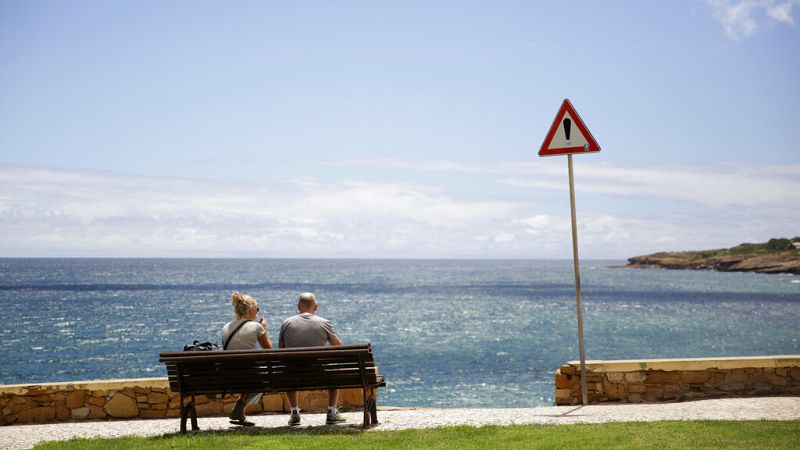Portugal's heatwave extends to the ocean with unusually warm waters in Algarve

Portugal is experiencing high temperatures, with some regions reaching 34°C this Wednesday. The mainland is under several heat warnings, with eight districts under an orange warning from the national meteorological agency IPMA due to the high temperatures.
But the heat is not only on the land, with the water also hotter than usual. The Algarve region is very popular for holidays at this time of year and those who go for a swim in the sea will find the water at 23°C in the Portimão region and 24°C in the Faro region.
Although high, these temperatures are not a record. That was broken about a month ago, when the water temperature on Faro's beaches was around 25°C between 28 June and 9 July.
It's not just a local phenomenon.
Last July was marked by "extraordinary marine heatwave activity", according to figures from Mercator Ocean International, which operates the Copernicus Marine Service.
The organisation says that last month was the third hottest July in terms of marine temperature. Around 71 per cent of the global ocean recorded above-average temperatures and, according to the same report, the surface temperature "suffered anomalies in the North Pacific, North Atlantic and Indian Ocean".
Mediterranean Sea temperature breaks record
Temperatures in the Mediterranean Sea have also reached unprecedented levels.
In July, the sea reached an average surface temperature of 26.68°C, which surpasses the previous record, set in 2023, of 26.65°C.
The warming was widespread, with 95 per cent of the Mediterranean showing above-average temperatures and 63 per cent of the basin exceeding the long-term average by at least one degree and 40 per cent by at least two degrees.
The western Mediterranean was the most affected by the so-called "extreme anomalies" identified, according to Mercator Ocean International.
Although pleasant for those who want to enjoy a few days at the beach, the rise in sea temperature can have a number of harmful consequences. Marine heatwaves can affect ocean ecosystems, killing marine life such as fish, mammals, birds and corals.
Rising ocean temperatures can also trigger other surface phenomena such as storms, floods and droughts.

